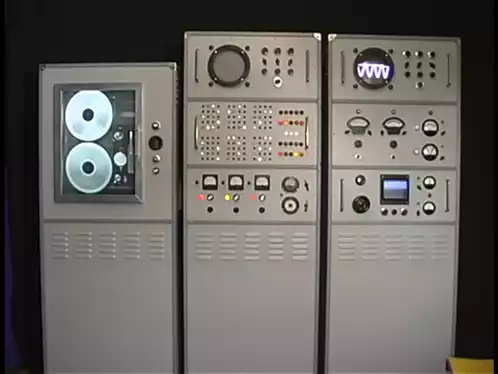Mini-ITX Bitcoin PC Build optimized for running a full Bitcoin node (with Lightning support), using a 4TB drive for long-term archival, full validation, or additional decentralized tasks like IPFS, Nostr relay/app, or BTCPay Server.
🖥️ Mini-ITX Bitcoin Node Build (Efficient + Expandable)
🧠 CPU
- AMD Ryzen 5 5600G (6 cores, 12 threads, integrated graphics)
🔧 No need for GPU, good performance & low power draw
🏷️ ~$130
🔗 Amazon
🧩 Motherboard
- ASRock B550M-ITX/ac (Mini-ITX, AM4, WiFi)
✅ Supports M.2 NVMe + SATA, has Wi-Fi and Bluetooth
🏷️ ~$120
🔗 Amazon
💾 RAM
- 16GB DDR4 (2x8GB) 3200MHz
🟢 Enough for Bitcoin Core, Electrs, BTCPayServer, and system processes
🏷️ ~$40
💽 Boot Drive (OS & Bitcoin Datadir Optional)
- 500GB NVMe SSD (for OS + fast access)
🔧 Bitcoin datadir can be put here or on the HDD
🏷️ ~$35
🗃️ Data Storage
- 4TB 3.5” SATA HDD (e.g., Seagate Barracuda or WD Blue)
✅ Reliable for long-term data, Bitcoin & Lightning history
🏷️ ~$80–100
🖥️ Case + PSU
InWin Chopin MAX (with 200W PSU)
🧩 Compact Mini-ITX, includes power supply
🏷️ ~$150
🔗 InWin StoreNote: Chopin MAX only supports 2.5” drives. If using a 3.5” 4TB HDD, consider:
- Silverstone SG13 (fits 3.5" drive + GPU if needed) – ~$65
- Or mount the 3.5" drive externally via Sabrent USB 3.0 to SATA Dock
🧊 CPU Cooler
- Thermalright AXP90-X47 Full Copper (if using Chopin MAX or low-profile case)
🏷️ ~$35
🔗 Amazon
🌐 Connectivity
- Built-in Wi-Fi on motherboard or use Ethernet
- Optional: Add a low-cost UPS to prevent data corruption
⚙️ Software Stack
OS: Ubuntu Server or MX Linux
Bitcoin Node: Bitcoin Core
Lightning Node: LND / Core Lightning
Optional:
- Electrs – Electrum Server for your node
- BTCPay Server – if you want to self-host Lightning payments
- Tor – for anonymous peer communication
- Nostr relay or IPFS node if multitasking
🔌 1. UPS Battery (Uninterruptible Power Supply)
🛡️ Why:
A UPS protects your Bitcoin node (and any other services) from data corruption during power outages or electrical surges by providing temporary backup power and graceful shutdown.
🧰 Recommended Models:
- APC Back-UPS 600VA or 850VA
- CyberPower CP600LCD or higher
🛠️ Setup:
Plug the UPS into your wall outlet.
Connect your Mini-ITX node, router, and optionally external drive to the UPS's battery+surge outlets.
Install
apcupsdon Linux to monitor battery status:sudo apt install apcupsd sudo systemctl enable apcupsd sudo systemctl start apcupsdConfigure
/etc/apcupsd/apcupsd.confif needed for custom shutdown behavior.Test it by unplugging the UPS to see how long your node runs.
🧱 2. Steel Backup Plate (Seed Phrase Storage)
🔒 Why:
To securely store your wallet seed phrase or node credentials, protecting against fire, water, and physical damage. This is not optional if you’re securing any Bitcoin wallet.
🧰 Recommended Brands:
- Blockplate
- COLDCARD® Seedplate
- CryptoSteel Capsule
🛠️ Setup:
Write down your 12 or 24-word BIP39 seed phrase from your wallet (Phoenix, Sparrow, Coldcard, etc.).
Using a punch kit or letter tiles, engrave or stamp the words into the steel plate.
Store the plate in a secure, hidden place. 🔐
- Ideally not in your home, but somewhere secure and inaccessible to others.
Do not store a digital photo or unencrypted copy of the seed online or on your PC.
🔐 3. YubiKey or Coldcard (Hardware Wallets)
🔐 3A. YubiKey (for Login + 2FA + GPG Signing)
Why: Strong device-based security for SSH login, password managers, GPG keys, and even Lightning node admin access.
🛠️ Setup:
Buy a YubiKey 5 NFC / 5C / 5Ci depending on your device.
Install YubiKey software:
sudo apt install yubikey-managerConfigure 2FA for GitHub, email, etc.
Optionally use for:
gpgkey signing- SSH login via GPG agent
- Password manager (Bitwarden, KeepassXC, etc.)
🔐 3B. Coldcard (for BTC storage + multisig)
Why: One of the most secure hardware wallets available. Use it to hold the funds from your node, sign transactions offline, or participate in multisig wallets.
🛠️ Setup:
Power on Coldcard, initialize a wallet, and write down the seed securely on your steel backup plate.
Connect it via USB or microSD air-gapped method.
Use with software wallets like:
- Sparrow Wallet (recommended)
- Electrum
- Specter Desktop
Create a multisig with Sparrow + Coldcard + Trezor or another signer for added redundancy.
For node integration:
- Export xpub to Bitcoin Core or BTCPayServer.
- Use watch-only mode on your node for balance visibility without private keys on device.
🎯 Final Notes
| Add-on | Critical Use |
|---|---|
| 🔌 UPS Battery | System stability during blackouts |
| 🧱 Steel Backup Plate | Indestructible seed storage |
| 🔐 YubiKey | Securing authentication & GPG |
| 🔐 Coldcard | Offline BTC signing and cold storage |
These tools bring longevity, resilience, and security to your Bitcoin node build. You're not just running a node — you're building sovereign infrastructure.






